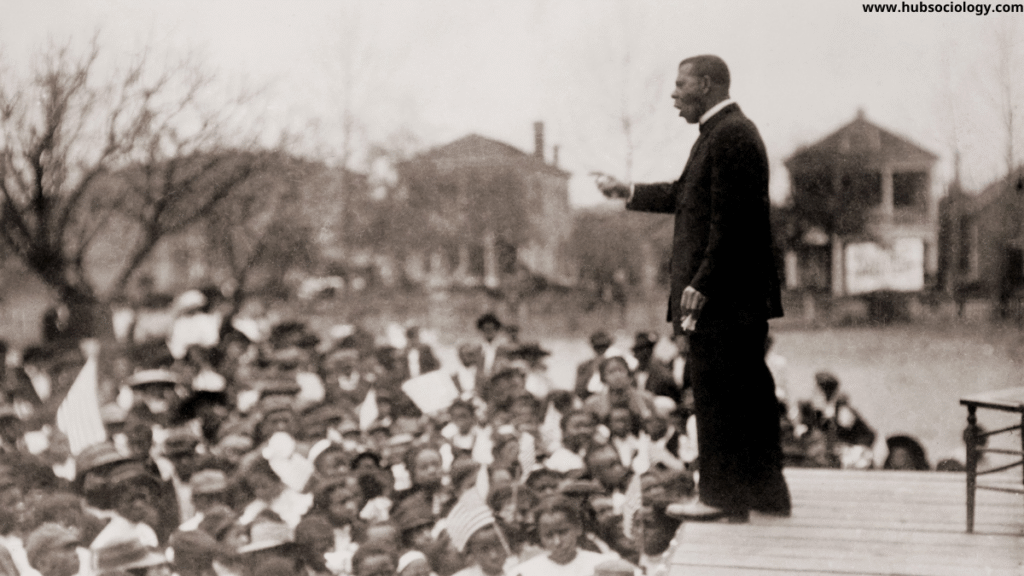Introduction on C. Wright Mills
In the mid-20th century, American sociology was dominated by structural functionalism, an approach most famously associated with Talcott Parsons and Robert K. Merton. Functionalism emphasized the stability of society, viewing it as a system of interrelated parts working together to maintain order and equilibrium. However, as the world entered an era of social upheaval, wars, civil rights movements, and rapid industrial and political change, functionalism came under criticism for its conservative assumptions and inability to address inequality, conflict, and power. Among its strongest critics was C. Wright Mills (1916–1962), an American sociologist known for his radical perspective, his call for sociological imagination, and his deep critique of mainstream sociology.
C. Wright Mills opposed what he called “grand theory” (functionalism) and “abstracted empiricism,” believing both failed to engage with the real problems of society. His critique of functionalism was central to his intellectual project, positioning sociology as a discipline that should analyze power, history, and the lived experiences of individuals within broader structures.
This article examines C. Wright Mills’ critique of functionalism, highlighting his alternative vision for sociology and its significance in contemporary sociological thought.
Functionalism: The Dominant Paradigm
Before exploring C. Wright Mills’ critique, it is important to understand what functionalism represented in American sociology. Functionalism viewed society as a social system composed of interdependent institutions, each performing functions necessary for the survival and stability of the whole. For example, the family socializes children, education transmits culture, religion provides moral order, and the economy organizes production.

Key features of functionalism included:
- Consensus Orientation – Society was seen as based on shared values and norms.
- Stability and Order – Social systems were assumed to be self-regulating and stable.
- Integration of Institutions – Institutions functioned in harmony, contributing to the equilibrium of society.
- Teleology – Social institutions were often explained in terms of their “functions” for society, sometimes overlooking their historical origins.
While functionalism provided a systematic framework for understanding social order, critics argued that it ignored conflict, change, and inequality. Mills emerged as one of its most forceful opponents.
C. Wright Mills’ Critique of Functionalism
1. Rejection of “Grand Theory”
C. Wright Mills famously criticized Parsons’ functionalism as “grand theory” in his influential book The Sociological Imagination (1959). He argued that grand theory was overly abstract, detached from empirical reality, and filled with jargon that obscured rather than clarified social life.
For C. Wright Mills, grand theory failed because:
- It attempted to construct an all-encompassing system of society but lacked empirical grounding.
- It emphasized abstract categories like “system,” “structure,” and “function” without connecting them to lived human experiences.
- It treated individuals as passive products of social systems rather than active agents.
Instead of addressing pressing social issues such as inequality, militarism, and bureaucracy, functionalism indulged in a theoretical system so broad that it lost touch with reality. Mills considered this a betrayal of sociology’s responsibility.
2. Ignoring History and Social Change
Functionalism tended to portray society as static, self-sustaining, and timeless. Mills rejected this ahistorical perspective. He insisted that social analysis must be grounded in history, emphasizing that societies are shaped by dynamic processes of change, conflict, and struggle.
For example, functionalists might describe the family in terms of its role in maintaining stability, while Mills would insist on asking: How has the family changed over time? Who benefits from its current structure? How do power and inequality shape it? By ignoring history, functionalism missed the deeper forces shaping social life.
3. Neglect of Power and Inequality
Perhaps C. Wright Mills’ sharpest criticism was that functionalism ignored power relations. Functionalists stressed consensus and integration, but Mills argued that societies were deeply marked by conflict, domination, and hierarchy.
His concept of the power elite, developed in The Power Elite (1956), demonstrated how political, economic, and military elites dominate modern societies. This contradicted functionalist views of society as harmonious and integrated. Mills showed that social order is not simply based on shared values but often maintained through coercion and the concentration of power in the hands of a few.

Thus, functionalism’s picture of a balanced, cooperative society masked the realities of inequality, exploitation, and control.
4. Abstracted Individual vs. Real Human Agency
Functionalism, according to Mills, treated individuals as “role players” whose actions were determined by the needs of the social system. In contrast, Mills emphasized the importance of agency and lived experience.
In The Sociological Imagination, Mills argued that individuals’ personal troubles are linked to public issues of social structure. Functionalism missed this connection, reducing individuals to mere instruments of systemic needs. For Mills, sociology should instead empower people to understand how their biographies are connected to history and social forces, thereby reclaiming agency.
5. Functionalism as Conservative Ideology
Mills also accused functionalism of serving as a conservative ideology. By emphasizing stability, integration, and consensus, functionalism implicitly legitimized the status quo. It provided little space for critique of social injustice, inequality, or domination.
In Mills’ view, this made functionalism complicit with the interests of elites, turning sociology into an academic exercise detached from the struggles of ordinary people. For him, the true role of sociology was to challenge power and expose hidden structures of domination, not to justify them.
C. Wright Mills’ Alternative Vision
While Mills dismantled functionalism, he also offered a different vision for sociology. His alternative can be summarized in several key concepts:
- The Sociological Imagination – The ability to connect personal troubles with public issues and historical processes. This approach restored the link between individual agency and broader structures, which functionalism had obscured.
- Historical and Comparative Analysis – Mills urged sociologists to study society historically, recognizing change and diversity rather than assuming timeless stability.
- Focus on Power and Inequality – Unlike functionalism’s consensus orientation, Mills placed power at the center of analysis, studying how elites dominate and how inequality shapes social life.
- Public Sociology – Mills believed sociology should speak to broader publics, not just academic elites. He called for an engaged sociology that addresses real-world problems like war, poverty, racism, and bureaucracy.

Legacy of Mills’ Critique
Mills’ critique of functionalism played a crucial role in shifting sociology away from the dominance of Parsons and functionalist orthodoxy. By the 1960s, conflict theories, Marxist sociology, feminist theory, and symbolic interactionism rose to prominence, offering alternatives to functionalism. Mills’ insistence on power, history, and agency resonated strongly with these emerging perspectives.
His ideas anticipated later critiques that functionalism was Eurocentric, patriarchal, and blind to race, class, and gender inequalities. Mills helped clear the ground for a more critical, engaged, and reflexive sociology.
Even today, Mills’ critique remains relevant. In an era marked by global inequality, political polarization, and concentrated corporate power, his warnings against abstract, system-oriented theories and his call for a sociology of power continue to inspire sociologists worldwide.
Conclusion
C. Wright Mills stands as one of the most influential critics of functionalism in sociology. By rejecting Parsons’ grand theory, exposing the ahistorical and conservative biases of functionalism, and highlighting issues of power, inequality, and human agency, Mills reshaped the direction of sociological thought. His alternative vision, rooted in sociological imagination, historical inquiry, and public engagement, offered a dynamic counterpoint to the sterile abstractions of functionalism.
Ultimately, Mills’ critique was not just an academic disagreement; it was a call to make sociology a tool for understanding and transforming society. In this way, his opposition to functionalism was part of a broader project: to keep sociology honest, engaged, and relevant to the lives of ordinary people.
Do you like this this Article ? You Can follow as on :-
Facebook – https://www.facebook.com/hubsociology
Whatsapp Channel – https://whatsapp.com/channel/0029Vb6D8vGKWEKpJpu5QP0O
Gmail – hubsociology@gmail.com
Exam-style questions
5 Marks Questions (Short Answer)
- Who was C. Wright Mills and why is he important in sociology?
- What did Mills mean by “grand theory,” and how did he criticize it?
- Mention one key difference between functionalism and Mills’ sociological imagination.
- Why did Mills argue that functionalism ignored social change?
- What is the “power elite” according to C. Wright Mills?
10 Marks Questions (Medium Answer)
- Discuss C. Wright Mills’ critique of Talcott Parsons’ functionalism as “grand theory.”
- Explain how Mills criticized functionalism for ignoring history and social change.
- How did C. Wright Mills connect personal troubles with public issues in contrast to functionalist thinking?
- Evaluate the claim that functionalism serves as a conservative ideology according to Mills.
- How did Mills’ alternative vision of sociology differ from the assumptions of functionalism?
15 Marks Questions (Long Answer/Essay Type)
- Critically examine C. Wright Mills’ critique of functionalism with reference to his major works.
- “Functionalism presents society as harmonious and integrated, while Mills highlights inequality and power.” Discuss.
- How did C. Wright Mills’ concept of the sociological imagination serve as an alternative to functionalist approaches?
- In what ways did Mills’ critique of functionalism influence the development of conflict theory and critical sociology?
- Analyze the continuing relevance of Mills’ critique of functionalism in contemporary society.
